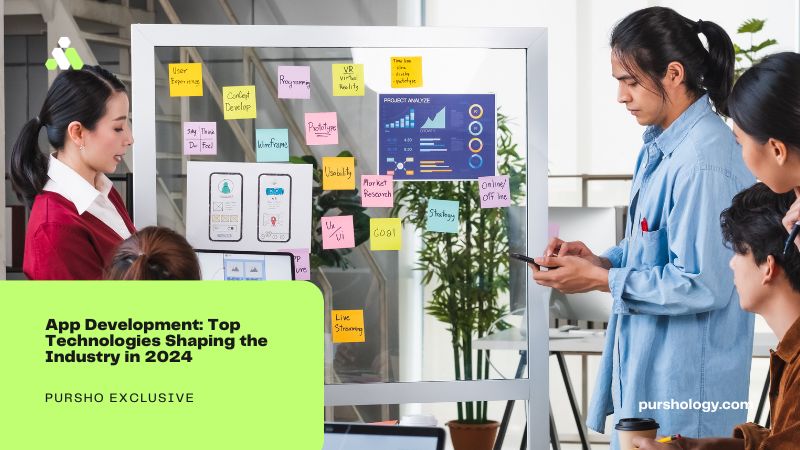In the ever-evolving landscape of mobile app development, technological advancements continue to redefine the industry, making the process of app creation more streamlined, efficient, and accessible.
From the revolutionary advent of no-code and low-code app builders to the integration of cutting-edge technologies such as artificial intelligence (AI), big data analytics, and immersive experiences like augmented reality/virtual reality (AR/VR), the realm of app development is undergoing a profound transformation.
This article aims to provide an in-depth exploration of the top technologies that are set to power app development and shape the industry in 2024.
1. No-code & Low-code App Builders: Revolutionizing App Development
The traditional paradigm of app development, heavily reliant on coding expertise, is experiencing a seismic shift with the rise of no-code and low-code app builders.
These innovative platforms empower developers and non-developers alike to create robust applications without the need for extensive coding knowledge. A prime example is AppMySite, a code-free solution that has simplified Word Press app development, allowing users to transform websites into premium native apps within minutes.
While low-code app builders still require some technical knowledge and learning, no-code app builder are doing wonders for citizen development. Owing to code-free app development technologies, app development is to become easier, faster, and more affordable this year.
This section delves into the transformative impact of no-code and low-code technologies on the app development landscape, making the process more accessible, rapid, and cost-effective.
2. PWAs and Instant Apps: Transforming User Experience
Progressive Web Apps (PWAs) and Instant Apps represent a paradigm shift in user experience by seamlessly blending the best features of websites and applications.
PWAs, renowned for their reduced time to market, faster loading times, and device-agnostic accessibility, are gaining prominence across various industries.
This section explores the myriad advantages of PWAs and delves into industry-specific examples where these apps offer efficient and instantaneous solutions, reshaping how users interact with digital content.
3. AI and Machine Learning: Shaping the Future of App Functionality
The influence of artificial intelligence (AI) and machine learning in app development is reaching new heights, transforming various segments of the industry.
From creating realistic photograph animations to powering maps and navigation systems with unparalleled precision, AI is becoming an indispensable tool for developers.
Deep learning, a subset of machine learning, is propelling advancements in user behavior analytics, real-time data tracking, personalized search results, authentication processes, and the integration of intelligent Chabot support.
This section delves into the multifaceted impact of AI and machine learning on app functionality, illustrating how these technologies are shaping the future of user interactions and experiences.
4. AR/VR: The Next Frontier in Immersive Experiences
Augmented Reality (AR) and Virtual Reality (VR) have been present in the tech landscape for some time, but their influence is expected to reach new heights in the coming years.
The expansion of 5G networks is set to facilitate easier implementation and broader usage of AR/VR technologies in mobile apps.
This section explores the burgeoning applications of AR/VR across diverse industries such as gaming, eCommerce, entertainment, and travel. From Pokémon Go’s global phenomenon to online furniture stores allowing users to visualize products in their homes, the potential applications of AR/VR are vast and transformative.
Conclusion
The mobile app development landscape is amidst a transformative era, with technologies like no-code app builders, PWAs, AI, and AR/VR taking center stage.
These innovations not only streamline the development process but also elevate user experiences across diverse industries.
Looking ahead, the article envisions the increasing use of Beacon technology, the proliferation of apps for wearable and foldable devices, the rise of mobile commerce, the integration of blockchain, the utilization of Big Data Analytics, and advancements in the Internet of Things (IoT) as additional catalysts for the dynamic evolution of app development.
Aspiring developers entering the industry at this juncture find themselves at the forefront of a technological revolution, with ample opportunities to harness these innovations and contribute to the future of mobile applications.




